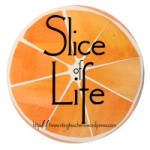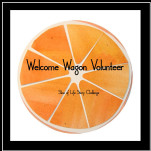#SOLSC17: Planning
I search my computer.
My starting point.
What do I already have?
Think.
Take a walk.
Come back and dig in.
A PLAN!
What does this connect to?
Who are my go to authors?
The most accurate sources?
So many tabs open that I can only see a letter on each.
What to keep?
What to file?
What to read?
Which books do I put on my stack?
And the big question:
What to use?
I’m working on my PD for Monday.
What’s my plan?
What’s my process?
Be not dismayed!
I have books.
I have professional books.
I have shelves and shelves and shelves of books!

But sometimes my book is on my desk at the office . . .
And sometimes someone has borrowed my book and is reading it!
Have you seen my secret weapon?
This was new to me just last month. It’s the Heinemann Digital Library and it’s already been a lifesaver. Understand this. I greatly admire the many authors that can narrow down their “5 Most Influential Book Lists”. I really, really do! However, I struggle to narrow down my “Top 5 Books for Fluency” or “My Top 5 Books for Conferring” or My Top 5 Books for Small Group Instruction”. (Is it too many books or too many favorites?)
What’s the Heinemann Digital Library?
It’s an annual subscription resource for unlimited and searchable access to books, articles, videos and even courses to learn more about reading, writing, assessment, early childhood, math, school improvement, and many more topics.
Why am I so fascinated with the Heinemann Digital Library?
Well, I am often known to have TWO copies of my well-used, beloved professional books. One is marked up with questions, comments, “!”, “*”, and other annotations. Pages will be dog-eared. Some may be tabbed. And yes, there will be sticky notes but those notes don’t remain sticky for long if I’m constantly peeling them off to peer at the words underneath. Access to the digital library now means that I can access the resource from my computer which is so handy when quite frankly, I don’t really remember where the book is right now.
How have I used this resource?
Here’s one example. I needed to add more information to my knowledge base and find some specifics for increasing student engagement during writing workshop. I have several resources on my stack on my desk:
Writing Pathways by Lucy Calkins
The Unstoppable Writing Teacher by Colleen Cruz (also in the Digital Library)
The Writing Strategies Book: Your Everything Guide to Developing Skilled Writers by Jennifer Serravallo
But I now also have these books, articles and a video courtesy of the Heinemann Digital Library.




One video, two articles, and three books . . . plus the resources that I already have. I’m pretty confident that I have a wide range of professional resources from recognized literacy researchers, experts and teachers. I have my resources and I’m now ready to work!
How does this connect to classroom work?
This is also the work that I would expect high school students to complete independently (after providing the groundwork in elementary) for the following ELA College and Career Ready Anchor Standards.
“CCRA.R.1 Read closely to determine what the text says explicitly and to make logical inferences from it; cite specific textual evidence when writing or speaking to support conclusions drawn from the text.
CCRA.R.2 Determine central odeas or themes of a text and analyze their development; summarize the key supporting details and ideas.
CCRA.R.5 Analyze the structure of texts, including how specific sentences, paragraphs, and larger portions of the text (e.g., a section, chapter, scene, or stanza) relate to each other and the whole.
CCRA.R.7 Integrate and evaluate content presented in diverse media and formats, including visually and quantitatively, as well as in words.
CCRA.R.8 Delineate and evaluate the argument and specific claims in a text, including the validity of the reasoning as well as the relevance and sufficiency of the evidence.
CCRA.R.9 Analyze how two or more texts address similar themes or topics in order to build knowledge or to compare the approaches the authors take.CCRA.R.10 Read and comprehend complex literary and informational texts independently and proficiently.”
“CCRA.W.2 Write informative/explanatory texts to examine and convey complex ideas and information clearly and accurately through the effective selection, organization, and analysis of content.CCRA.W.4 Produce clear and coherent writing in which the development, organization, and style are appropriate to task, purpose, and audience.CCRA.W.5 Develop and strengthen writing as needed by planning, revising, editing, rewriting, or trying a new approach.CCRA.W.6 Use technology, including the Internet, to produce and publish writing and to interact and collaborate with others.CCRA.W.7 Conduct short as well as more sustained research projects based on focused questions, demonstrating understanding of the subject under investigation.CCRA.W.8 Gather relevant information from multiple print and digital sources, assess the credibility and accuracy of each source, and integrate the information while avoiding plagiarism.CCRA.W.9 Draw evidence from literary or informational texts to support analysis, reflection, and research.CCRA.W.10 Write routinely over extended time frames (time for research, reflection, and revision) and shorter time frames (a single sitting or a day or two) for a range of tasks, purposes, and audiences.”
I would not presume to say that “working on the standards ONCE” would allow me to determine whether the standard has been met. I would want a body of evidence but that’s a whole different series of blog topics!
If you plan professional development, what’s your process?
Where do you get your quality resources?
Additional Resources:
Heinemann Digital Library Link here
@HeinemanPub
@HeinemanPD
and, in the spirit of disclosure, Yes, this was written after conversations with Cathy Brophy at Heinemann after I purchased my own personal membership to the Heinemann Digital Library and tweeted about it.

Thank you, Betsy, Beth, Deb, Kathleen, Lanny, Lisa, Melanie, and Stacey for this weekly forum and the #SOLSC that runs from March 1 to the 31st. Check out the writers, readers and teachers here.

